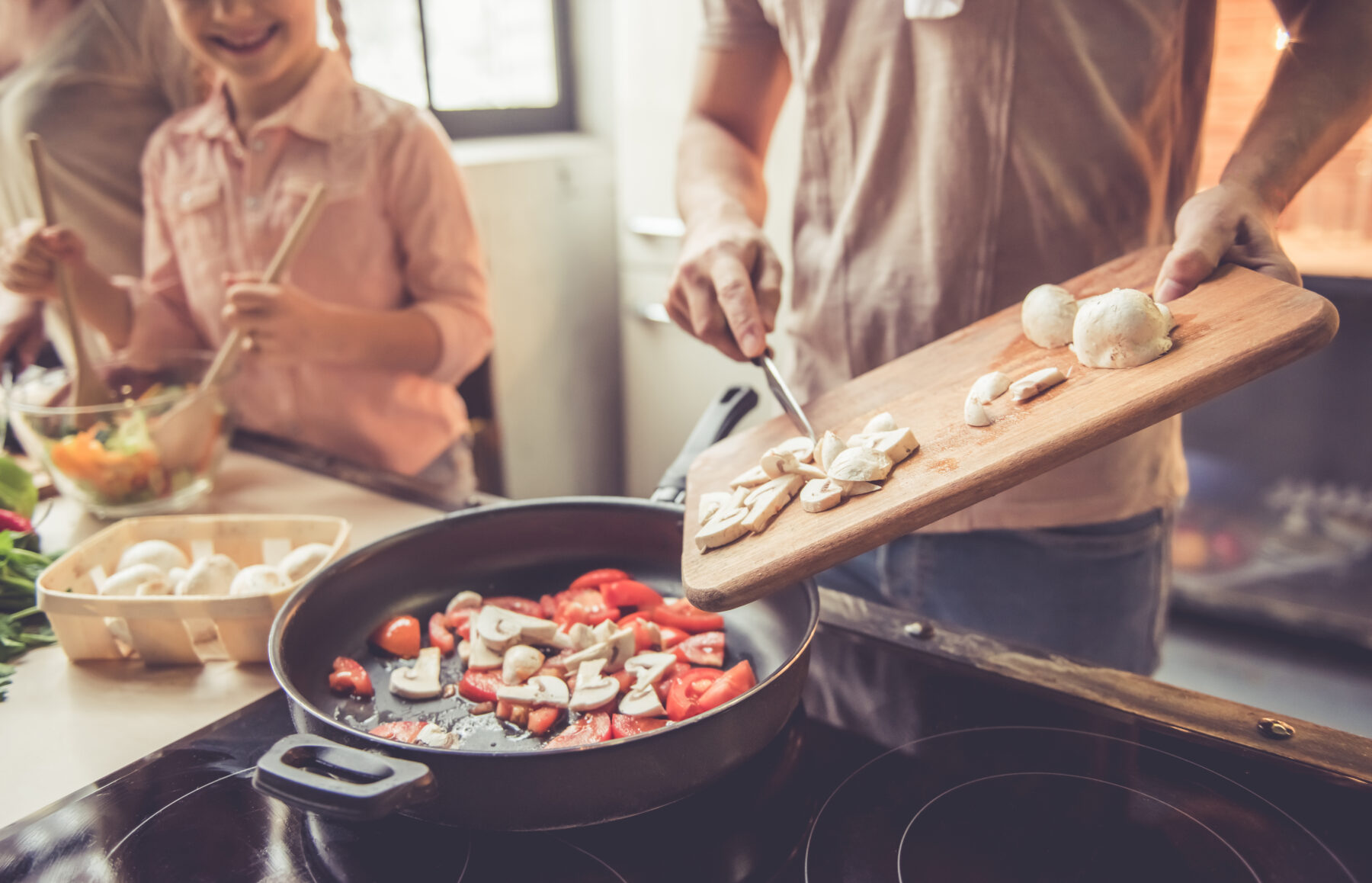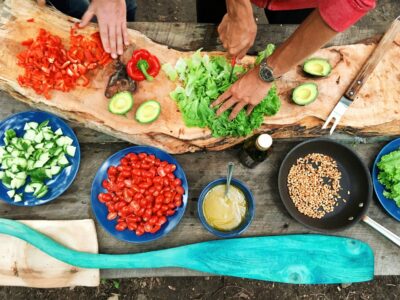Every car owner in America groans with one voice when they fill up their gas pumps these days. Rising gas prices and other supply chain issues have forced us to reevaluate spending habits and pay closer attention to budgets.
This is not such a bad thing.
All throughout Scripture, there are examples of faith under duress, individuals who persevere through suffering, develop character, embrace hope, and gain wisdom through the process. One of the best drivers for personal and systemic change is the disruption of the norm. We’re far less likely to make change happen when we’re comfortable.
So, how can you turn that gas-price frown upside down? Look for sustainable ways to live, and save a dollar or two in the process. Here are some creative ideas to simplify your day, reduce waste, treat the environment kinder, and maybe even invite more peace and joy into your world.
Take a Hike, or Bike, or Public Transportation, for Your Commute

Depending on where you live, there are plenty of other ways to get from here to there that are more environmentally friendly and easier on your bank account than driving a personal vehicle.
I live within city limits of a small town with sidewalks. Most things I need or want in life are within a mile of my house: there are three coffee shops, two grocery stores, my church, multiple downtown shops and restaurants, a city park with paved walking paths, and more. It takes me the same amount of time to ride my bike to some of these places as it does to start my car and drive. If I choose to walk, my commute doubles as an exercise routine and prayer or meditation time.
Go to Map Developers and draw a one-mile radius around your house: what can you get to without taking a car? It takes a shift in perspective and adjusting the urgency of our day-to-day lives, but we can gain some quiet time and save both money and fossil fuel by getting back to using our legs for what they’re intended: moving.
Meal Plan
There have been times I’ve pitched loads of produce I had high hopes of consuming but that spoiled before we got around to eating them. We’re basically throwing away money, and filling up our landfills in the process.
We can do better by taking time each week to map out a detailed plan for what we’re actually going to cook and eat and making a grocery list that parallels the menu. What is leftover from the night before becomes lunch the next day, saving myself or my husband from the quick panicked sprint to the local fast-food place, where lunch seems to cost between $10 and $15 these days.
A meal plan also saves you the same quick, panicked sprint to the local fast-food place for dinner during the week, which, as much as we love to eat out, puts a major dent into our budget. We’ve set a food reward of sorts for the week and budgeted out how many times we can go out to eat, have dessert, or visit the local coffee shop. All of these are treats—not necessities.
Buy only what you plan to eat this week, eat what you have instead of what you feel like consuming, and get creative with what’s leftover.
Host Friends at Home Instead of Going Out
There are a million reasons why having friends come over to your house is better than going out. I think I’m going deaf or something, because I have a really hard time hearing conversations in crowded restaurants. Plus, it costs money. And paper products. And straws. And so on.
Have a coffee date at your house. Have friends over for dinner. Plan a weekly potluck that rotates homes and carry in a dish to share. Use each other’s real, actual plates and real, actual silverware, and real, actual cups. You’ll save paper products and money and your eardrums, too.
Eat a Meatless Monday (or More)
Not only is a vegetarian diet healthier for you, it is also far cheaper and has a significantly less impact on the environment than meat. If going meatless is overwhelming to you, try making one meal a week (in your new meal plan!) meatless, and keep it simple. A Couple Cooks offers 40 Easy Vegetarian Meals for Beginners. Often it can be as simple as cutting out the meat and adding in a vegetable or dairy-based protein.
Grow (and Make) Your Own
If you want to get really green, start growing your own vegetables. Seed packets and a little soil can go a long way towards fresh salads, for pennies. The best part, besides hyper-local produce, is being able to share extras with your neighbors and friends.
You can also save by making the things you want to eat or use at home. Learn a new recipe for something similar to what you’ve been craving from a local restaurant or bakery. Find instructions online for your favorite cocktail or specialty coffee and make it as a special treat at home. You can even make laundry detergent and soaps far cheaper than what it costs to buy.
Create a Culture of Reusing
Our friend group through church has children ranging in ages from teens to infants, and it has become a practice for us to hand down clothes to the next closest child in age. My boys are among the oldest, and I get a little boost of nostalgia seeing kids a decade younger than them wearing their clothes, which have made their way through four different families already. You can do this with clothes, furniture, toys, and more—all it takes is a spirit of generosity and communication to save money and reduce waste.
Drop the Disposables
Stop spending money on all the things you’re going to use once and throw away, like paper towels, paper plates, plastic utensils, and so on. Instead, use what you already own, like old rags to wipe down surfaces and the plates you have on your shelf that you spent all that money on at some point. Using reusable products will save you money and reduce waste at the same time.
Shop at Farmers Markets
Locally grown produce is not only fresher and tastier, it’s also less expensive and fuels the local economy in ways that buying from the grocery store isn’t. You are also more likely to use reusable grocery bags or totes when shopping at the farmers market than the plastic that accompanies most produce sections.
Change Your Vocabulary
When things are good, it’s easy to spend without paying attention, but that can get you into trouble, especially when things get tight. Let’s just say my specialty coffee habit has gotten a little out of hand. Now is a good time to remind yourself about the difference between wants and needs. Revising how you talk about the things you buy for pleasure versus the things you buy for survival helps you make healthier choices and buying decisions… again, saving you money and reducing the amount of stuff accumulating in your house.
What ways are you saving money and living simply and sustainably? Share your ideas with the Root & Vine community in the comments on Instagram.





 Copyright
2024
Root and Vine
Copyright
2024
Root and Vine